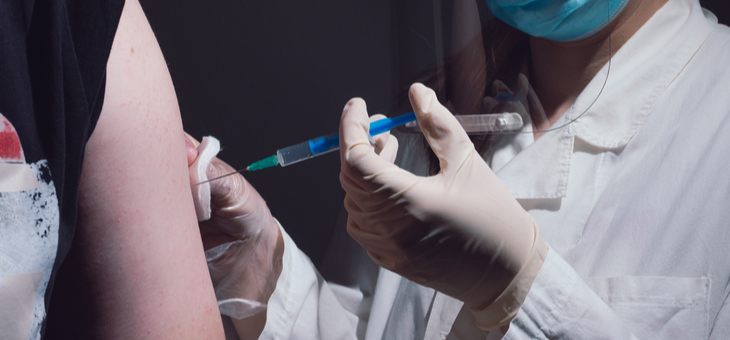Preliminary results into studies on the effectiveness of the current COVID-19 vaccines against the Omicron variant are starting to be released, and they highlight the importance of getting a booster shot as soon as you are eligible.
Researchers from the University of Oxford found that individuals who had received two doses of either the AstraZeneca or Pfizer vaccine produced lower levels of neutralising antibodies against Omicron.
Meanwhile, research on the first three weeks of the variant in South Africa, where it was first discovered, suggested that Pfizer provided some protection against being hospitalised with the virus.
Read: Booster shot program brought forward
The University of Oxford results indicate that the Omicron variant has the potential to drive a further wave of infections, including among those already vaccinated, which we have already witnessed with the explosion in case numbers across New South Wales this week.
On Wednesday, NSW health minister Brad Hazzard prepared the community for this eventuality, revealing University of NSW modelling that showed that state could see up to 25,000 new COVID cases per day by the end of January.
However, the researchers highlighted that there was no evidence of Omicron having increased potential for severe disease, hospitalisation or death among vaccinated populations.
There was further detail in how Omicron had behaved in the South African data, with Discovery Health, the country’s largest private health insurance administrator, releasing information on the first three weeks of the variant.
Read: Eight tips to avoid a super-spreading Christmas event
According to Discovery Health, having two doses of the Pfizer vaccine (the main vaccine in use across South Africa) provided 70 per cent protection against severe complications of COVID-19 requiring hospitalisation and just 33 per cent protection against COVID-19 infection.
This represents a significant drop from the 80 per cent protection afforded to previous variants of the virus.
The preliminary South African data also revealed that the risk of reinfection with Omicron for those who had had COVID-19 previously, was significantly higher with the new variant.
The good news from the data was that the new variant did appear to be somewhat less dangerous.
Read: How you’ll be reminded to get your COVID booster
The risk of hospital admission among adults diagnosed with COVID-19 was 29 per cent lower for the Omicron variant infection compared to the first wave of the virus, even after adjusting for vaccination status.
Professor Gavin Screaton from the University of Oxford’s medical sciences division said that the results pressed home the message that those who are offered booster vaccination should take it.
“While there is no evidence for increased risk of severe disease, or death, from the virus amongst vaccinated populations, we must remain cautious, as greater case numbers will still place a considerable burden on healthcare systems,” Prof. Screaton said.
Discovery Health chief executive Dr Ryan Noach also confirmed that the South African data suggested populations could expect much larger case numbers as the new variant spreads.
“The Omicron-driven fourth wave has a significantly steeper trajectory of new infections relative to prior waves,” Dr Noach said.
“Data show an exponential increase in both new infections and test positivity rates during the first three weeks of this wave, indicating a highly transmissible variant with rapid community spread of infection.”
When are you eligible for your booster shot? Will you be getting your booster as soon as it is available to you? Why not share your thoughts in the comments section below?
If you enjoy our content, don’t keep it to yourself. Share our free eNews with your friends and encourage them to sign up.

